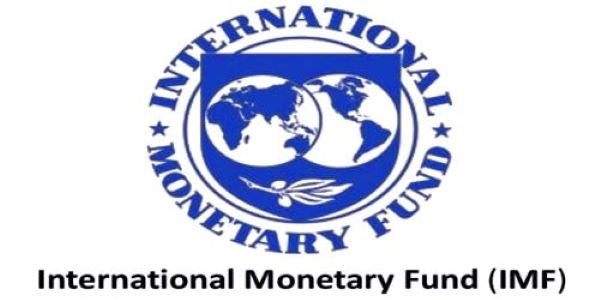Tobias Adrian, Financial Counsellor and Director of the Monetary and Capital Markets Department of the International Monetary fund (IMF) says excessive risks posed by the coronavirus pandemic can be contained by “stepping up prudential supervision”.
“The implementation of the G20 financial regulatory reforms after the 2008 global financial crisis strengthened the financial system. This stronger starting point and swift and bold actions by central banks, fiscal authorities, and financial regulators have been key in containing the economic and financial fallout of the pandemic. However, risks have been on the rise,” he revealed.
READ ALSO: Jointly Build the Foundations of a Better 21st Century Global Economy, IMF MD Urges G20 Leaders
Director Tobias Adrian made these comments at the OAP-University of Tokyo Conference on Lessons from the Global Financial Crisis in the Age of COVID.
“We have seen much good news about vaccines during the last couple of weeks,” he remarked but until there is a lasting medical solution available globally, “the strength of the recovery is highly uncertain and the impact on sectors and countries will remain uneven”.
“The pandemic could crystallize financial vulnerabilities that have built up over the past decade. Firms and households have taken on more debt to cope with cash shortages, adding to the already high debt levels in several economies. Liquidity pressures may morph into insolvencies if recovery is delayed”.
Although policy responses have varied across countries, Tobias Adrian posits that “some countries have relied on measures that are out of line with international standards such as relaxation of asset classification and provisioning rules” because they have limited policy buffer and weaker implementation capacity.
“For these countries, it is imperative that measures that weaken transparency and undermine the longer-term resilience of the financial system be phased out as quickly as possible,” he urged.
Tobias Adrian further asserted that authorities should better target support measures including payment moratoria requiring banks to “prudently restructure loans and to collect granular data on borrowers’ evolving credit worthiness”. More so, regulatory bodies could allow longer timeframes for banks to restore capital buffers where they deem necessary.
Aside from strengthening the regulatory framework and stepping up prudential supervision to contain excessive risks, Tobias Adrian intimates that “policy measures may have to evolve further and adjust to changing underlying circumstances, including deteriorating credit quality and changing assessments of real economy funding needs and the path of recovery”.

Finally, the Financial Counsellor and Director of the Monetary and Capital Markets Department has cautioned authorities to be vigilant and ready to address new and growing financial risks until the pandemic is under control and economic recovery is firmly underway.
“For example, the resilience of nonbank intermediation is already acknowledged as a key area for future policy work”.
“Strengthening the regulatory framework and stepping up prudential supervision to contain excessive risk taking in a lower-for-longer interest-rate environment will be needed”.
“The IMF will continue to help its membership achieve these goals through our lending lifelines, our ongoing surveillance of emerging risks and vulnerabilities; our extensive capacity development to build stronger national financial systems; and our contribution to the Financial Stability Board and standard-setting discussions,” he concluded.





















